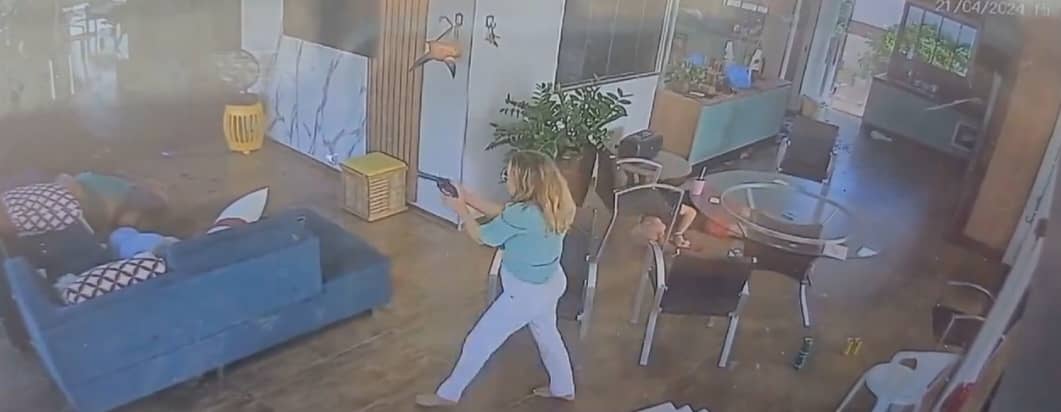SÃO PAULO, Brazil – Brazil’s government is taking radical measures against indigenous rights in the country, according to Cleber Buzatto, general coordinator of the Indigenous Missionary Council (IMC), an organization of the National Conference of Bishops of Brazil.
Since President Jair Bolsonaro’s election at the end of 2018 there have been complaints from indigenous peoples around the country about the invasion of their lands by local farmers, miners and logging companies — frequently accompanied by intimidation, threats and violence.
“In the past few months, we have also been noticing an increase in the number of cases of invasion with the direct intention of taking possession of the indigenous lands, through fraudulent and criminal means,” Buzatto told Crux.
The 1988 Brazilian Constitution said that all indigenous lands should be demarcated into special “indigenous territories” within five years. However, more than 30 years after its promulgation, only 400 demarcations were completed – a situation that resulted in permanent conflict in several regions occupied by indigenous peoples.
Brazil’s indigenous population numbers just less than a million people, making up only about 0.6 percent of the population.
Bolsonaro ran a conservative populist campaign reminiscent of the successful 2016 run of U.S. President Donald Trump, who Bolsonaro openly admires, and promised to open up indigenous areas to greater development.
“Today, 847 indigenous areas are waiting for the conclusion of the bureaucratic process to be legally attributed to their peoples. And no measure was taken concerning 520 of them,” said Buzatto. To make things worse, he said the current administration is advancing a policy that is “completely antagonistic” to the demarcations.
Taking advantage of the legal impasse, non-indigenous people are simply invading non-demarcated lands and claiming ownership.
“That’s the situation the Karipuna, Uru-Eu-Wau-Wau, Arara and Awa Guaja peoples, for instance, are facing in Northern Brazil,” Buzatto said.
The Karipuna people, in particular, have endured a large invasion of their area, an occupation that is getting closer and closer to their village. “Since they got in touch with the non-indigenous society, back in the 1970s, their population has greatly decreased. There are only 60 people left. So there’s a risk of a real genocide in their land,” Buzatto explained.
With the IMC’s help, indigenous organizations have been denouncing the attacks on their rights to the Brazilian government and international entities, including the United Nations Human Rights Council.
“A few indigenous peoples in the Amazon don’t have any contact with the greater society but might be suffering violence too. Unfortunately, we don’t have the means to demonstrate it,” he said.
When Bolsonaro assumed office in January, he announced the demarcation of indigenous lands would not be under charge of the Ministry of Justice, but under the Ministry of Agriculture – which is highly influenced by farmers who have a vested interest in taking indigenous land.
This decision was protested across the country, with the help of the IMC, which also organized several conversations with members of Brazil’s congress and executive branch.
In April, 4,000 indigenous people from all across Brazil camped in the capital Brasilia to protest the transfer of responsibility to the agriculture ministry. Before the demonstration, the authorities mobilized the National Guard, and there were fears of a confrontation.
“But the protesters were very peaceful and organized their activities without any kind of disturbance,” said Bishop Roque Paloschi, IMC’s president.
Bolsonaro ending up scrapping his plan.
“Now the indigenous peoples are fighting for other rights, particularly concerning their access to health and education,” said Paloschi. According to him, recently there has been a great rise in the number of complaints about public health services for indigenous groups. Earlier this week, the Brazilian non-governmental organization Reporter Brazil revealed that three indigenous children died within 11 days in the largest reservation in Brazil, the Xingu Indigenous Park, due to the lack of medical personnel and supplies.
The federal government has also made cuts to a scholarship program for indigenous persons who are pursuing higher education. “This is their only hope to survive in the cities; but since 2018, payments have been unstable and no new scholarships have been offered,” said Buzatto.
The Brazilian Church, according to Buzatto, has been greatly supportive of indigenous peoples, defending their rights at both the local and national levels, playing “an organic role in this cause.”
The protection of indigenous populations will be one of the main items on the agenda of the Synod of Bishops on the Amazon region taking place this October in the Vatican.
Paloschi said he believes that in the near future the indigenous organizations will continue to mobilize and pressure the government.
“We live in a country full of prejudice against indigenous peoples and this contributes very much to the current situation. They are not asking for anything more than their rights, which are guaranteed by the Federal Constitution,” the bishop said.
Crux is dedicated to smart, wired and independent reporting on the Vatican and worldwide Catholic Church. That kind of reporting doesn’t come cheap, and we need your support. You can help Crux by giving a small amount monthly, or with a onetime gift. Please remember, Crux is a for-profit organization, so contributions are not tax-deductible.
















